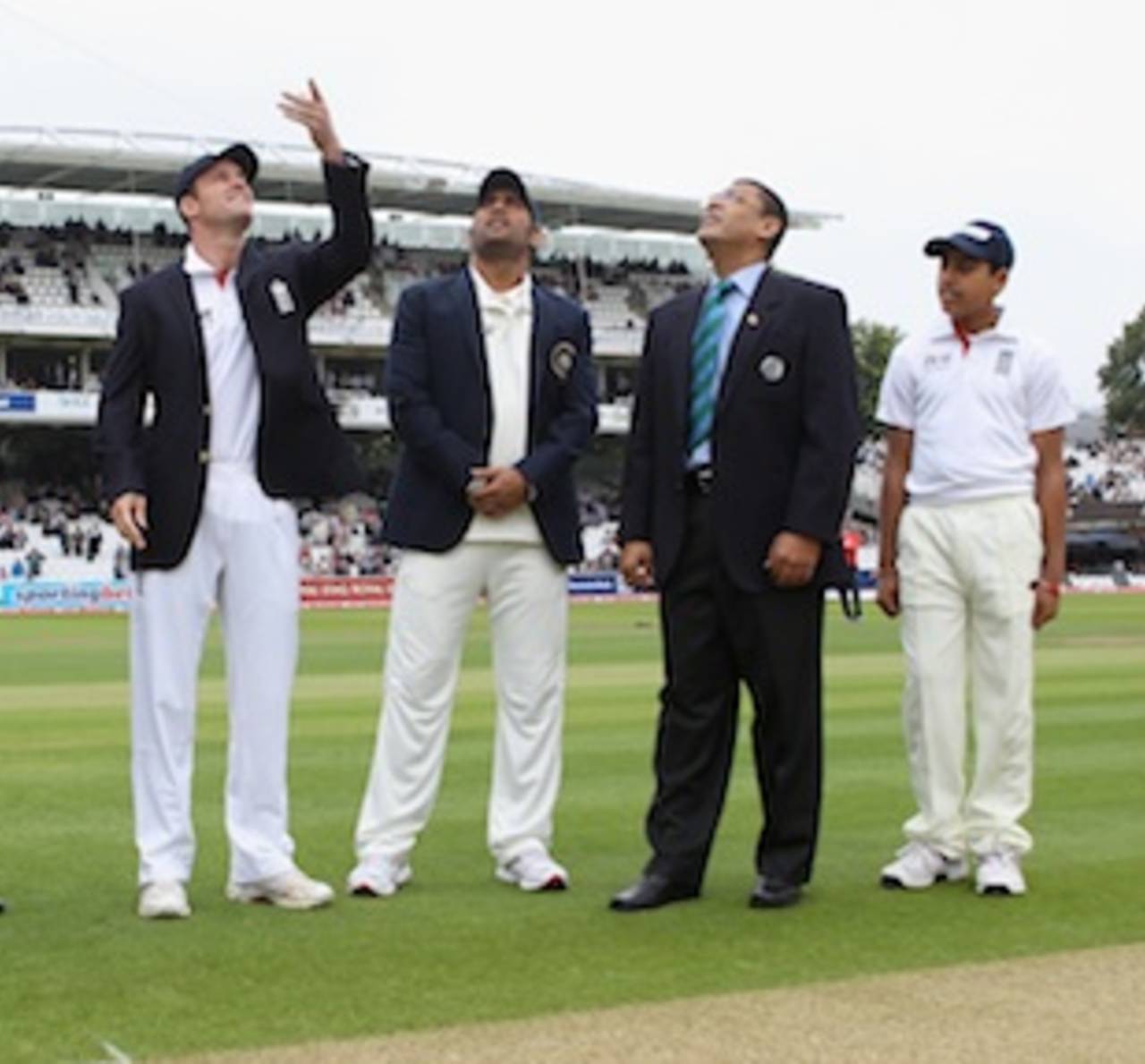It's England v India, but not in a good way
One looks at the other in terms of tired clichés, the other insists on being an unaccommodating bully
Harsha Bhogle
Jul 22, 2011, 3:03 AM

England seems convinced India is a bully and India refuses to explain its standpoint, even when valid • Getty Images
"East is east and west is west and ne'er the twain shall meet" Rudyard Kipling wrote, and certainly the first half of the opening lines of his ballad still tend to ring true. For in spite of what Thomas Friedman may say about the world being flat, and in spite of world economies bringing nations closer, I can't help help get the feeling that England and India, two dominant cricketing nations with bonds that go much deeper than cricket alone, are standing arrayed against each other. I fear that neither particularly wants to understand the other, and that cannot be right for our game.
I sense that here in England that India is being looked at as an unprincipled bully. It need not be that way and it may not always be true either, but in the absence of an open dialogue that is how it is being represented in the media. And so it is on the DRS, on the issue of unhappy umpires - indeed on almost every aspect of the modern game. It doesn't help that India sometimes adopts this nouveau riche attitude of being loud and unaccommodating: my way or no other.
I believe India had a very valid point on the DRS: that ball-tracking with normal-speed cameras is not much good, and that - as even the opinion of the head of Virtual Eye bore out - we might be better off without it. But India is never very keen to explain its stand, preferring instead to make its point of view known to the world through terse statements.
England, for its part, often slips into tired clichés about India. To read some of the sports pages here would be to believe that an economic, and more appropriately a social, revolution never took place. To believe that India's emergence is largely because of western coaches, and that the toughness would never have come about without them, is to be lazy, and exposes an inability, or an unwillingness, to understand the new, globalised twenty-something Indian, and to understand that India's attitude on the field is but a direct illustration of the attitude of its young entrepreneurs and managers in industry.
India is still someone that needs to be withstood, someone who has newly come upon riches and has nothing else to offer. Why, in a debate on the future of Test cricket, even the Times, a fine newspaper if there was one, did not feel the need to get an Asian point of view.
And so there is far too much of this rather unpleasant us-and-them feeling. In some quarters in India we believe that it is our time to give it back to them, and that can be short-sighted and distinctly unfruitful. Having been treated rather rudely on my first tour here, I can understand that feeling, even if I can never accept it. While India bring substantial revenues to English cricket every four years, England showed their generosity by coming back to play Test matches in India after the terror attack in Mumbai in 2008. That was a great moment. It was one where bonds should have been strengthened, and indeed the Chennai Test is my favourite among the 99 the two sides have played so far, but I sense we have let it slip. England may seem unwilling to accept the present but India need to show a little more style and grace.
Now in the undisputed home of Test cricket (there isn't a ticket available for any day of this series), two teams stand arrayed against each other, but the two countries should not miss the chance to understand each other better. England provides more opportunities to cricketers through its leagues and counties than anyone else, and there is genuine love for the game here. India is the new market but needs to move from being the merchant to turning statesman, to looking at the world rather than at a region. Irrespective of which way the series goes, this is an opportunity we cannot miss.
For eventually we are bound together by a great game; it may no longer always be noble but it retains many great virtues. Maybe Kipling is right, for the ballad continues:
But there is neither East nor West, Border, nor Breed, nor Birth,
When two strong men stand face to face,
tho' they come from the ends of the earth!
Harsha Bhogle is a commentator, television presenter and writer. His Twitter feed is here